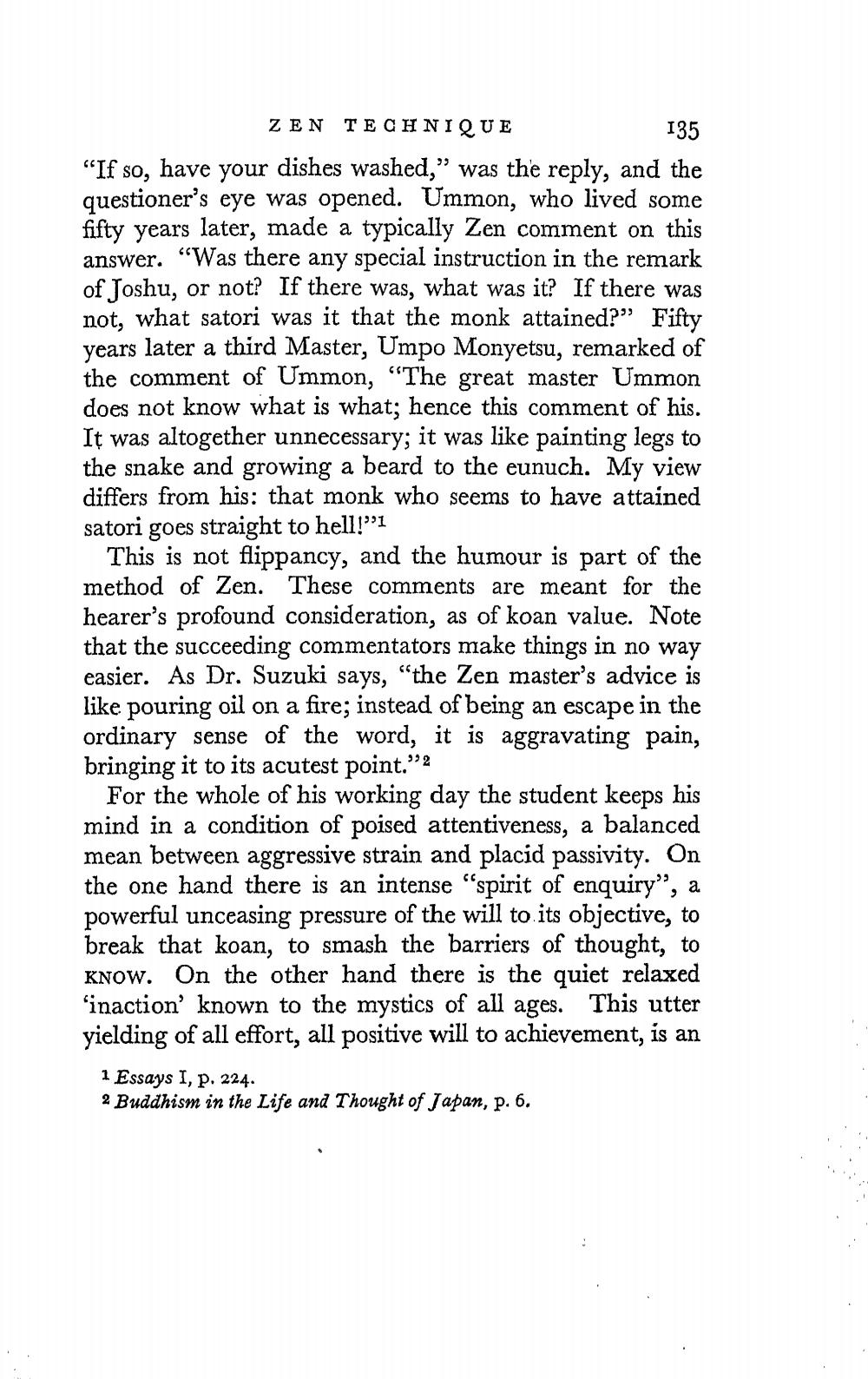________________
135
ZEN TECHNIQUE "If so, have your dishes washed," was the reply, and the questioner's eye was opened. Ummon, who lived some fifty years later, made a typically Zen comment on this answer. “Was there any special instruction in the remark of Joshu, or not? If there was, what was it? If there was not, what satori was it that the monk attained?” Fifty years later a third Master, Umpo Monyetsu, remarked of the comment of Ummon, "The great master Ummon does not know what is what; hence this comment of his. It was altogether unnecessary; it was like painting legs to the snake and growing a beard to the eunuch. My view differs from his: that monk who seems to have attained satori goes straight to hell!"}1
This is not flippancy, and the humour is part of the method of Zen. These comments are meant for the hearer's profound consideration, as of koan value. Note that the succeeding commentators make things in no way easier. As Dr. Suzuki says, "the Zen master's advice is like pouring oil on a fire; instead of being an escape in the ordinary sense of the word, it is aggravating pain, bringing it to its acutest point."
For the whole of his working day the student keeps his mind in a condition of poised attentiveness, a balanced mean between aggressive strain and placid passivity. On the one hand there is an intense "spirit of enquiry", a powerful unceasing pressure of the will to its objective, to break that koan, to smash the barriers of thought, to KNOW. On the other hand there is the quiet relaxed "inaction' known to the mystics of all ages. This utter yielding of all effort, all positive will to achievement, is an
1 Essays I, p. 224. 2 Buddhism in the Life and Thought of Japan, p. 6.




